Bringing a newborn puppy into your home is an exciting and rewarding experience. However, it also comes with significant responsibilities to ensure their health and well-being. Understanding the essentials of taking care of newborn puppies is crucial for their proper development and fostering a strong bond between you and your furry friend.
Newborn puppies require a specific environment to thrive, including proper nutrition, warmth, and regular veterinary care. Providing the right balance of care during these early stages sets the foundation for a happy and healthy life. Whether you’re a first-time puppy parent or looking to enhance your knowledge, this guide offers valuable insights into newborn puppy care.
From feeding schedules to creating a safe space, every aspect of puppy care plays a vital role in their growth. By following these expert tips, you can ensure that your newborn puppies receive the attention they need to flourish, paving the way for a joyful companionship for years to come.
Providing a Safe Whelping Area
A secure whelping area ensures newborn puppies’ safety and well-being. It supports their development during the crucial early stages.
Setting Up a Comfortable Space
Choose a quiet location away from high-traffic areas to minimize stress. Use a whelping box with sides raised 12 inches for easy access. Line the box with soft, washable bedding such as fleece or blankets. Include a nesting area where the mother can rest and nurse without disturbance. Ensure the space is free from hazards and provides ample room for movement and care.
Ensuring Proper Temperature Control
Maintain a consistent temperature of 85°F (29°C) during the first week, reducing by 5°F each subsequent week until ambient temperature is reached. Utilize heating pads covered with a blanket to prevent direct contact and avoid overheating. Monitor the area with a reliable thermometer to ensure temperature stability. Proper temperature control prevents hypothermia and supports healthy growth in newborn puppies.
Nutrition for Newborn Puppies

Proper nutrition ensures healthy growth and development in newborn puppies. It supports their immune system and overall well-being during the critical early stages.
Feeding the Mother
Provide the mother with a high-quality, nutrient-rich diet to support lactation. Ensure she has constant access to fresh water and feed her several small meals daily. Include foods high in protein and calcium to maintain milk production and her health. Monitor her weight and condition to adjust dietary needs as necessary.
Bottle Feeding Orphaned Puppies
Use a commercial puppy milk replacer to feed orphaned puppies, avoiding cow’s milk. Warm the formula to body temperature before feeding. Bottle feed every 2-3 hours, including overnight, for the first week. Gradually increase the amount as puppies grow, ensuring they receive adequate nutrition. Sterilize bottles and nipples after each use to prevent infections.
Health Care Essentials
Ensuring newborn puppies receive proper health care supports their growth and prevents future illnesses. Essential health practices include regular health checks and a vaccination and deworming schedule.
Regular Health Checks
Routine examinations monitor puppies’ development and identify any health issues early. Inspect puppies daily for signs such as:
- Weight gain: Weigh puppies at least once a week to ensure consistent growth.
- Temperature: Maintain a body temperature between 99°F and 102°F; use a rectal thermometer for accuracy.
- Mobility: Observe for coordinated movements and absence of limping or weakness.
- Skin and coat: Check for clean, shiny fur and absence of parasites like fleas or mites.
- Eyes and ears: Ensure eyes are clear without discharge and ears are clean and free from infection.
Vaccination and Deworming
Implementing a vaccination and deworming schedule safeguards puppies from common diseases and parasites. Follow these guidelines:
Vaccinations:
- First dose: Administer at six weeks of age.
- Subsequent doses: Provide every three weeks until 16 weeks old.
- Core vaccines: Include distemper, parvovirus, and rabies.
- Initial treatment: Begin at two weeks old.
- Frequency: Administer every two weeks until 8 weeks, then monthly until six months.
- Common dewormers: Use products effective against roundworms, hookworms, and tapeworms.
| Age Range | Vaccination Schedule | Deworming Schedule |
|---|---|---|
| 6 weeks | First vaccine dose | Every two weeks until 8 weeks |
| 9 weeks | Second vaccine dose | Every two weeks until 8 weeks |
| 12 weeks | Third vaccine dose | Monthly until six months |
| 16 weeks | Final vaccine dose | Monthly until six months |
| 6 months & above | Rabies vaccination (as required) | Monthly deworming if not previously done |
Adhering to these schedules ensures puppies develop strong immune systems and remain free from harmful parasites.
Socialization and Development
Proper socialization and physical development are crucial for newborn puppies’ growth. These practices ensure well-adjusted and healthy dogs.
Early Socialization Techniques
Introduce puppies to various environments to build confidence. Expose them to different sounds, surfaces, and gentle handling by people. Arrange controlled interactions with other vaccinated puppies to develop social skills. Gradually introduce new experiences, such as car rides and household noises, to prevent fearfulness later. Consistent positive interactions foster trust and reduce anxiety.
Stimulating Physical Development
Encourage movement through gentle play to strengthen muscles and coordination. Provide age-appropriate toys to promote natural behaviors like chewing and pouncing. Ensure puppies have ample space to explore safely, enhancing their motor skills. Regular, supervised exercise supports bone growth and overall health. Monitor their activity levels to prevent overexertion and ensure balanced development.
Grooming and Hygiene Practices
Maintaining proper grooming and hygiene is essential for the health and development of newborn puppies. Effective practices prevent infections and promote overall well-being.
Bathing Newborn Puppies
Bathing newborn puppies requires careful attention to temperature and frequency. Use lukewarm water between 90-100°F to avoid chilling. Limit baths to once a month or when visibly soiled, using a mild, puppy-safe shampoo. Gently dry puppies with a soft towel, ensuring they remain warm to prevent hypothermia. Avoid excessive bathing, which can disrupt natural skin oils and lead to dryness.
Maintaining a Clean Environment
Keeping the whelping area clean supports puppies’ health and minimizes disease risks. Replace bedding weekly with clean, dry materials to eliminate bacteria and mites. Regularly disinfect the space using pet-safe cleaners, focusing on surfaces and areas where puppies sleep and play. Ensure the environment remains free from pests by implementing preventive measures such as using flea collars and maintaining overall cleanliness. Proper ventilation and consistent temperature control further enhance the cleanliness and comfort of the puppies’ habitat.
Conclusion
Caring for newborn puppies requires dedication and attention to detail. By providing the right environment, nutrition, and healthcare, owners can ensure their puppies grow strong and healthy. Building a solid foundation during these early stages sets the stage for a lifetime of companionship and joy.
With the right approach, new puppy parents can navigate the challenges of the early weeks confidently. Embracing these essential care practices not only supports the puppies’ development but also fosters a meaningful bond between the owner and their new furry family members.

